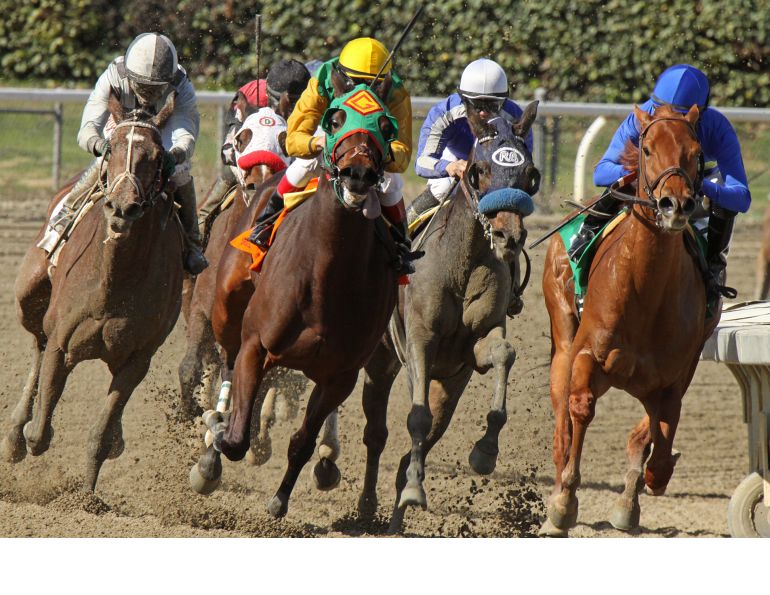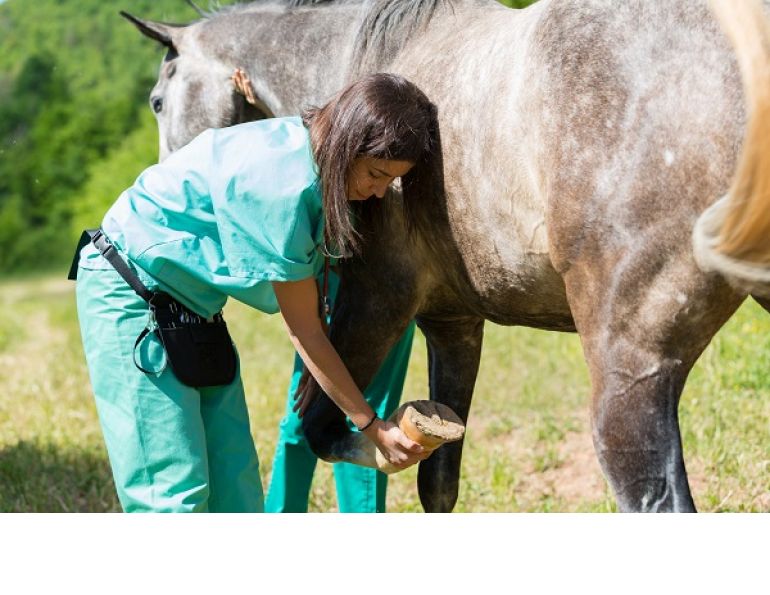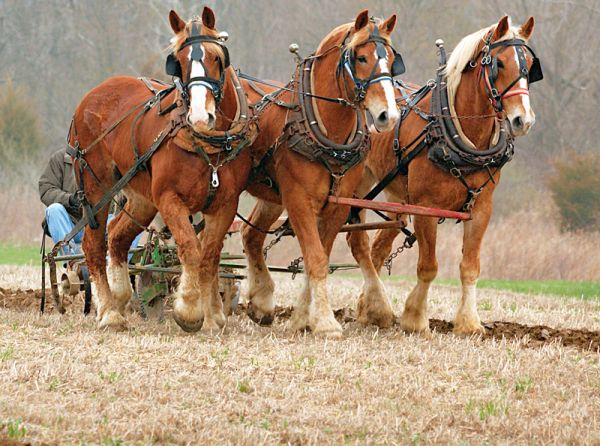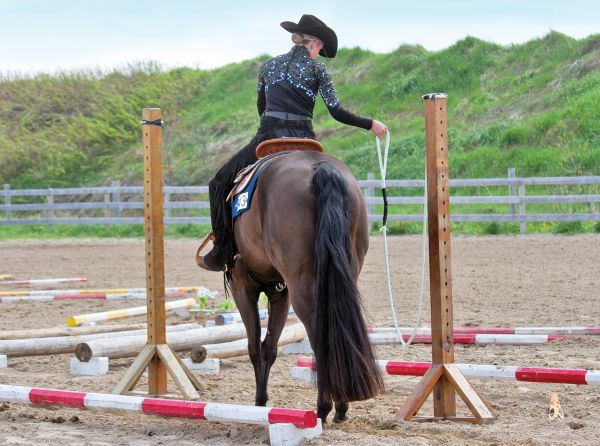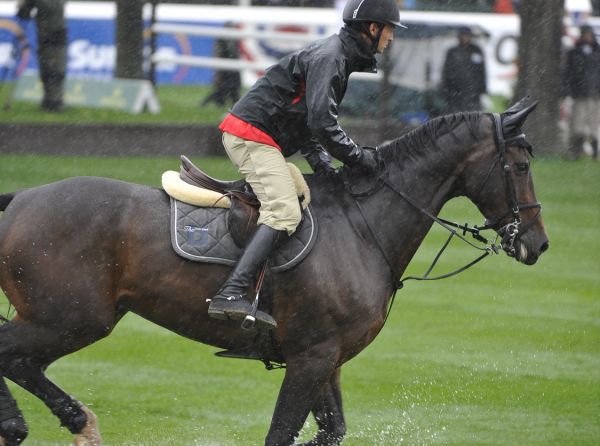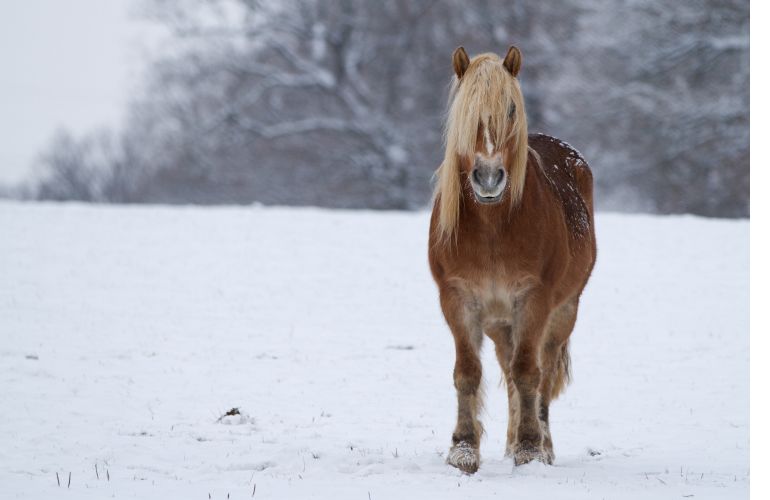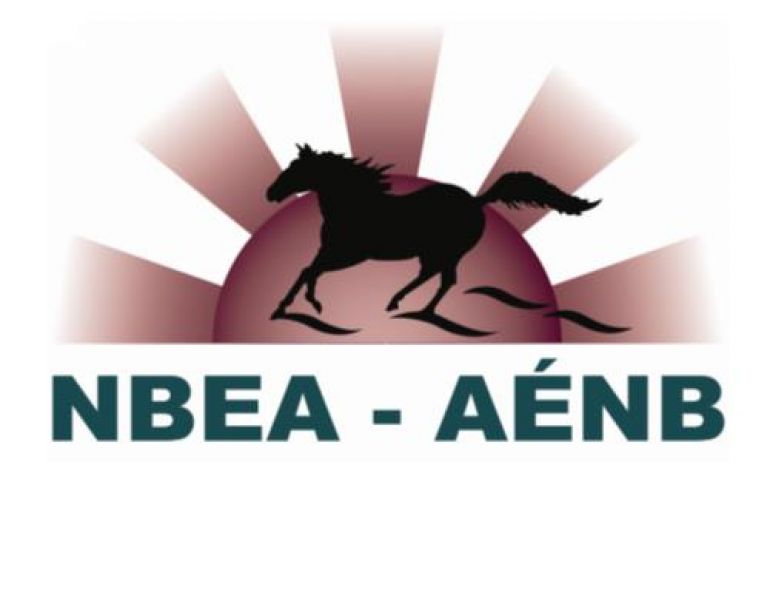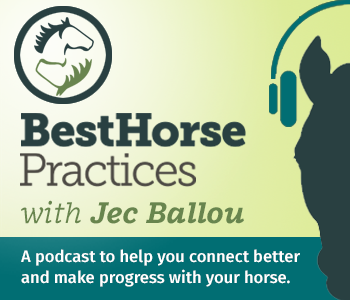By Luis Arroyo, DVSc
Diarrhea is the hallmark clinical sign of equine colitis (inflammation of the colon), a condition which can occur in horses of any breed, gender, and age. Horses are particularly susceptible to acute, severe, and sometimes fatal diarrheal illness because of their large colon and caecum. Considerable progress has been made in the last decade in understanding what used to be called “colitis X.” However, many cases of colitis have no known cause. Therefore, in a large proportion of equine cases, the cause of the diarrhea cannot be established. These cases are usually classified as undifferentiated, undetermined, or idiopathic colitis, which is a diagnosis of exclusion made once other known causes of colitis have been ruled out.
Causes of Diarrhea
Potential causes for diarrhea may be classified as infectious or non-infectious.
Infectious Causes
At the Ontario Veterinary College Teaching Hospital, the most common enteropathogens (intestinal agents) identified as the cause of diarrhea in horses include Salmonella species, Clostridium difficile, Clostridium perfringens, and to a lesser extent Neoricketssia risticii (also known as Potomac horse fever), as well as gastrointestinal parasites.
Salmonella species are organisms that are ubiquitous in the environment, and infection is acquired through ingestion of contaminated feed or water, or via direct contact with an animal shedding the bacterium. While Salmonellosis is among the most common causes of diarrhea, the proportion of cases that occur may vary according to a number of factors, including region and season.
Clostridial organisms (such as C. difficile and C. perfringens) are also found in the environment. Because they do not tolerate aerobic (oxygen) conditions while they grow, Clostridial organisms can exist in a dormant form, called spores, which allows them to survive until they are exposed to conditions that encourage their germination and replication, such as the gastrointestinal tract of the horse. In the right circumstances, these organisms produce virulence factors responsible for causing damage to the host (i.e. the horse) and, consequently, the development of clinical signs, including diarrhea.

Good quality hay and fresh water are prerequisites to a healthy equine digestive tract. Photo: Derrick Coetzee/Flickr
Potomac horse fever (PHF) is a seasonal, infectious, but non-contagious disease caused by the rickettsial organism, Neorickettsia risticii (previously Ehrlichia risticii). This bacterium has a complex life cycle involving aquatic insects, such as mayflies and caddisflies, and it is thought that the ingestion of hay, grain, pasture, or drinking water contaminated with dead insects may result in this acute and potentially fatal disease.
Typically, horses with diarrhea are screened for the known infectious causes of diarrhea, using a variety of screening tests. Bacteriological cultures and/or demonstration of virulence factors therein can be used to identify C. difficile, C. perfringens, and Salmonella in a fecal sample. Other techniques such as Polymerase Chain Reaction (PCR) of a fecal or blood sample can used and may be sensitive at detecting the presence of organisms including Salmonella and PHF. In certain diseases, serum can be used to demonstrate the immunological response of the horse to infectious agents such as PHF. For a thorough investigation of the cause of diarrhea, feces, whole blood, and serum may be required from horses suffering from this condition.
Non-infectious Causes
Non-infectious causes of diarrhea include non-steroidal anti-inflammatory drug (NSAIDs)-associated colitis (also known as right dorsal colitis) and antimicrobial-associated colitis. As in humans, the use of antibiotics can disrupt the normal intestinal microflora, allowing potentially harmful bacteria to overgrow and cause inflammation of the intestine.
Other potential risk factors include diet-related causes (carbohydrate overload, dietary change, withholding of feed), peritonitis (inflammation of the abdominal lining), toxicosis (such as “blister beetle poisoning”), chronic sand ingestion, neoplasia (intestinal lymphoma), and inflammatory bowel disease. Any inflammatory process in the intestinal wall can lead to malabsorption/maldigestion enteropathies that result in diarrhea. Stressful situations such as transportation, surgery, and high ambient temperature may also increase a horse’s risk of developing colitis, as they may cause the endogenous (internal) release of chemical mediators that can negatively impact the performance of the immune system. These conditions, however, account for only a minority of equine colitis cases.
Whatever the cause, diarrhea can progress to a life-threatening stage in any horse. Further, several secondary complications, including endotoxemia, septicemia, thrombophlebitis (inflammation and occlusion of blood vessels), and laminitis, can occur. Standard monitoring of any horse with colitis usually includes blood-gas analysis, hematologic and serum biochemical analysis, and in some cases urinalysis.
Treatment
Regardless of the cause, one of the most important goals of treatment for undifferentiated diarrhea consists of correcting the fluid and electrolyte losses associated with the condition. Depending on the degree of dehydration, this usually means the administration of a considerable volume (many liters) of intravenous fluids.

Stressors such as transportation, abrupt diet changes, withholding feed, surgery, and high ambient temperature can disrupt normal intestinal microflora, resulting in inflammation of the intestine. Photo: Carterse/Flickr
Inflammation of the intestine is managed by judicious administration of NSAIDs, such as flunixin meglumine, often at a lower dose in order to minimize any adverse side effects that these drugs can cause.
The control of endotoxemia and sepsis as well as the re-establishment of normal flora are also key objectives of the medical therapy. The use of antibiotics in these cases largely varies from case to case, and is usually based on clinicopathological parameters. A horse being treated with antimicrobials should be monitored daily with regard to temperature, fecal consistency, and general demeanour.
Preventing Diarrhea
Don’t allow any contact between your horse and animals suspected of shedding infectious organisms such as Salmonella. If you live in an area where PHF is endemic, help prevent your horse from accidentally ingesting aquatic insects by keeping the horse stabled during high-risk season and turning the lights off at night to avoid attracting flies.
General guidelines to maintain a happy digestive system in horses are a good quality diet and fresh water. Any changes in the routine diet should be carried out gradually, allowing the microflora of the digestive tract to adapt slowly to new or different amount of nutrients. Minimizing stressful situations is also an important factor.
When does Diarrhea Become a Serious Problem?
We know that the equine gastrointestinal tract is an impressive and almost overwhelmingly complex environment. It contains a dynamic population of microorganisms that interact with the body and ingested food, and disruption of the normal microflora can result in devastating effects.
Sporadic loose feces in a horse that otherwise seems completely healthy is probably not a reason to panic. However, a horse that is passing loose manure on a frequent basis is also losing considerable amounts of body fluids, becoming dehydrated, and may deteriorate very quickly. If you are concerned because your horse is suffering from diarrhea, ask yourself the following questions:
- Has he stopped eating and/or drinking?
- Does he have a fever?
- Does he look depressed?
- Does he appear to be in pain?
- Is he becoming dehydrated?
If the answer to any of the above questions is “yes,” or if you are at all in doubt, then your horse should be assessed by a veterinarian to determine if he is in need of further diagnostics and treatment. After all, it’s better to be safe than sorry.
Dr. Luis G. Arroyo, DVSc, PhD, DACVIM, is an assistant professor of Large Animal Medicine at the Ontario Veterinary College, University of Guelph, with particular interest in gastrointestinal infectious diseases and vascular pathologies in horses.
This article originally appeared in the November 2012 issue of Canadian Horse Journal.












